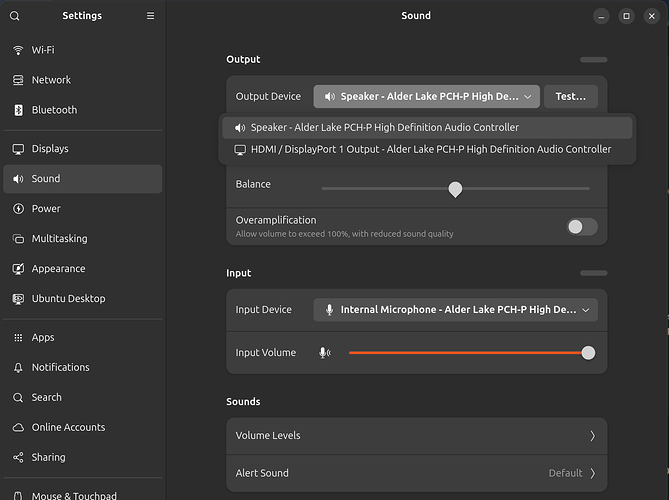I built this page to consolidate everything I know about this specific model. I found it frustratingly difficult to find all of this information in one place, so I paid it forward.
[Excerpts Below]
USB-C
The USBC is fully supported, but there is a bug that requires loading the kernel modules in reverse order to get it working.
rmmod cros-ec-typec; rmmod intel-pmc-mux # unload these modules
modprobe intel-pmc-mux; modprobe cros-ec-typec # load in reverse order
This can be automated with a systemd service. Create this file at /etc/systemd/system/usb4-fix.service:
[Unit]
Description=Fix USB4 module loading issue
After=multi-user.target
[Service]
Type=oneshot
ExecStartPre=/usr/sbin/rmmod cros-ec-typec
ExecStartPre=/usr/sbin/rmmod intel-pmc-mux
ExecStart=/usr/sbin/modprobe intel-pmc-mux
ExecStart=/usr/sbin/modprobe cros-ec-typec
RemainAfterExit=yes
[Install]
WantedBy=multi-user.target
Reload systemd to recognize the new service, and enable it on startup.
sudo systemctl daemon-reload
sudo systemctl enable usb4-fix.service
# you can test it now if you like
#sudo systemctl start usb4-fix.service
Reboot to test; USBC should start automatically
Keyboard Layout
Using keyd I remapped:
- the number keypad to the numeric values (as if NUMLOCK was on)
- the F keys to F1-F11 (there is no F12)
- Alt modifies the top row to their alternate functions (similar to Fn key)
- the Super key to Caps Lock
- Alt-Super is now Super
[ids]
*
[main]
# Map number pad keys to their standard characters, regardless of NumLock state
kp0 = 0
kp1 = 1
kp2 = 2
kp3 = 3
kp4 = 4
kp5 = 5
kp6 = 6
kp7 = 7
kp8 = 8
kp9 = 9
kpdot = .
leftmeta = capslock
rightalt = layer(altlayer)
back = f1
refresh = f2
zoom = f3
scale = f4
sysrq = f5
brightnessdown = f6
brightnessup = f7
micmute = f8
mute = f9
volumedown = f10
volumeup = f11
#power = f12 #power is a reserved key
[altlayer]
leftmeta = layer(meta)
back = back
refresh = refresh
zoom = zoom
scale = scale
sysrq = sysrq
brightnessdown = brightnessdown
brightnessup = brightnessup
micmute = micmute
mute = mute
volumedown = volumedown
volumeup = volumeup
pageup = f12
Onboard Audio
This TANIKS board is Alder Lake based (adl).
To get audio working we are going to need to install and link some drivers. There is a script to do this on multiple distros:
This peculiar dev WeirdTreeThing mentions in his script that he won’t support Ubuntu and that it doesn’t work. However I have found that this is not factual. If you comment out the part of his code that excepts Ubuntu, it works fine.
Workaround for Ubuntu 24
![]() On my Ubuntu 24 build, I commented out lines 338 & 339 where the ubuntu() function is called, the script will just install the necessary drivers. I suspect that this will work with Ubuntu 23 as well. Don’t do this with any of the supported distros.
On my Ubuntu 24 build, I commented out lines 338 & 339 where the ubuntu() function is called, the script will just install the necessary drivers. I suspect that this will work with Ubuntu 23 as well. Don’t do this with any of the supported distros.
```
# if distro.lower().__contains__("ubuntu_codename") and not distro.lower().__contains__("pop"):
# ubuntu()
print_header("Audio installed successfully! Reboot to finish setup.")
```
working audio on Ubuntu 24
